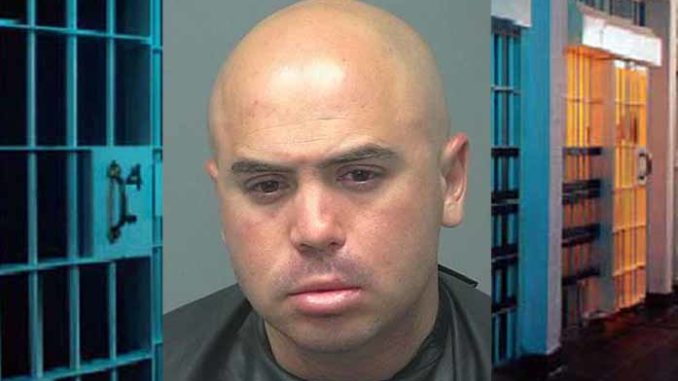
The Arizona Court of Appeals ruled last week that a Cochise County man serving 25 years in prison for sexual misconduct with minors is entitled to file a petition in support of a hearing on whether exculpatory evidence existed in the case that was not disclosed by the prosecutor before a plea deal was signed in 2014.
Michael Isidoro Sanchez pleaded guilty to committing two offenses of sex crimes involving a child under age 15 in 2013. He was also the subject of a U.S. Army court-martial proceeding related to other alleged sexual offenses with children at various military bases including Fort Huachuca.
On June 11, a three-judge appellate panel sent Sanchez’s case back to the Cochise County Superior Court so that Sanchez can move forward with a September 2019 notice of post-conviction relief. In that notice, Sanchez, now 35, claimed newly discovered material facts justified a hearing on whether there was evidence that “probably would have changed the judgment or sentence.”
Those new facts are medical examination records Sanchez claims were wrongly withheld by the Cochise County Attorney’s Office and never obtained by the various attorneys assigned to his case the last seven years.
After filing his notice last year, the next step in the process would have been for Sanchez’s appointed attorney to file a petition outlining the legal reasons why Sanchez was diligent in finally obtaining the reports and that he should be granted a hearing to argue that the reports could have changed the outcome of the case.
But Sanchez never got to file the petition. Instead, Judge Timothy Dickerson dismissed the post-conviction notice, ruling the reports were not “newly discovered” because Sanchez knew of the existence of the reports as far back as October 2016.
Dickerson also denied Sanchez’s request for appointment of legal counsel and ruled that whatever information was contained in the reports “is not evidence that (Sanchez) did not commit the offenses to which he pleaded guilty.”
However, last week’s unanimous decision by the court of appeals noted that while Sanchez may have known the medical reports existed in 2016, he did not have access to them until 2019. The appellate decision also found it was “premature for the trial court to evaluate the underlying merits of (Sanchez’s) claim” before the actual petition for post-conviction relief was filed.
As a result, Sanchez must be allowed to file his petition, the court of appeals ruled, although Dickerson could still come to the same determination afterward. The appellate decision will not take effect for 30 days to provide time for the Arizona Attorney General’s Office to decide whether to appeal the ruling to the Arizona Supreme Court.
Court records show the Army Criminal Investigation Division and Sierra Vista Police Department handled the investigation into Sanchez’s conduct with children in 2013. The alleged sexual activities occurred over several years.
The plea deal calls for Sanchez to serve his 25-year sentence day-for-day, meaning no early release eligibility. He must register as a sex offender and serve lifetime probation once released, but it’s unlikely Sanchez will walk out of prison a free man due to a U.S. Army detainer hold that will be triggered just prior to his release in June 2038.
After Sanchez was sentenced, he alleged that he was manipulated by the prosecutor into pleading guilty to avoid spending the rest of his life in prison. Sanchez has also asserted since at least 2015 that he could not have committed the sex crimes because the medical examinations purportedly found no injuries to the victims’ genitals.
Last week’s ruling is not the first time Sanchez’s case has come before the Arizona Court of Appeals. Public records show he filed three prior petitions for review of denials by the trial court on topics such as post-conviction DNA testing request and alleged ineffective assistance by his various court-appointed defense attorneys. He was denied relief in each of those earlier petitions.
